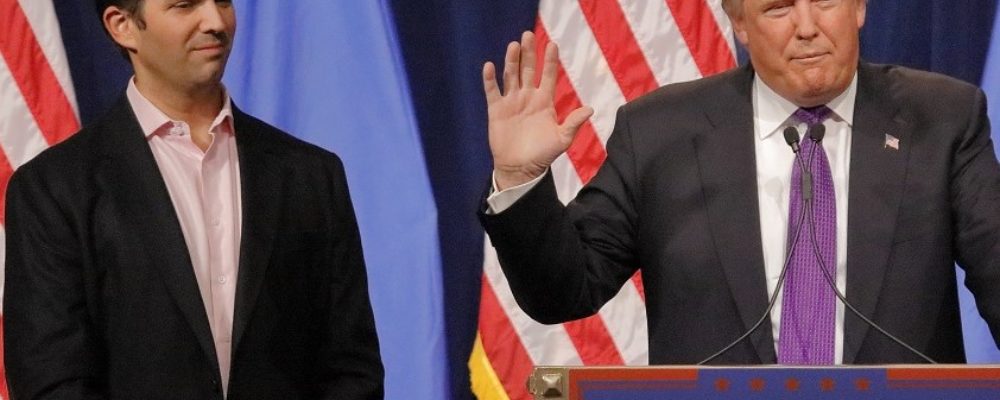While it wouldn’t be entirely accurate to say that the Trump family is back in the spotlight, as they are rarely out of it, there has certainly been an uptick in coverage of their more – how shall we say – disruptive behaviour.
Eyebrows were raised at the recent G20 meeting in Hamburg when Ivanka Trump took her father’s seat at the discussion table, abruptly stepping into the gathering of national leaders as a placeholder for the US President for reasons that remain unspecified.
Just a few days later, Donald Trump Jr was the subject of a media storm over emails apparently showing that he had been in contact with a Russian lawyer at the height of last year’s election campaign. According to the correspondence, the lawyer offered to dig dirt on Trump Sr’s Presidential rival Hillary Clinton.
The Ivanka and Donald Jr stories have both invited accusations of nepotism within the Trump inner circle. But what does nepotism actually look like – as opposed to a family business that works within a framework of best-practice management?
There are thousands of family businesses around the world that depend upon close ties and bonds between the various, related managers and employees. Succession planning in family firms is a notoriously difficult process that is often carried out with careful scrutiny because of the sensitivities involved. So, how can we tell when a family business is falling prey to nepotism?
The Institute of Leadership and Management's head of research, policy and standards Kate Cooper says: “Nepotism is usually defined as the practice of those in power or influence of favouring relatives or friends, especially by giving them jobs. In a family business, the closeness of relationships is a key driver, so from that, you’re expecting higher levels of commitment, loyalty and perhaps trust. Your expectations of those who are contributing to a family business would be different to recruiting for a non-family business, where maybe you wouldn’t have those factors as essential characteristics.
“If we extend the family concept to include perceptions of who is either like us or not like us, then all we need to do is take stock of diversity and inclusivity statistics to see that nepotism is, in fact, rife. There’s a lack of participation from the full range of different social groups at senior levels in organisations.”
She elaborates: “we tend to assume that there’s an absolute measure of competence, and that some people are magically at the top end of that scale – the classic notion of the best person for the job. Many leaders are reluctant to accept that, actually, the ‘best person’ is a highly subjective evaluation. To quote Rumsfeld, you go to war with the army you have, not the one you might want, or wish to have at a later date.
“And that’s so true of family-business leaders – they want the people closest to them to be in the business because it feels right and organic. They’re the family you’ve got. So, as a leader, your job is to help, nurture and encourage them to be the best that they can be. That means helping them to i) arrive at an honest assessment of their capabilities; ii) find a niche in the business that suits them and iii) let them speak openly about the contribution that they want to make. And in return for that third point, you must be honest about what you need from them.”
Cooper adds: “What’s underpinning all of this is how you can help people grow. I would question the notion that any interview or selection decision is truly meritocratic – there’s so much bias built into the process. If the essential characteristic of joining a family business is that you’re a member of the family – and that that brings with it the notion of aligning behind a higher purpose – then, on one level, there can’t be a better person for the job. So what those in charge of the family business must do is ensure that the appointed relative a) delivers on the mission, and b) is helped to be capable of doing that.”
For further thoughts on staff development, check out this learning item from the Institute
Image of Donald Trump Jr and Donald Trump courtesy of Joseph Sohm, via Shutterstock
